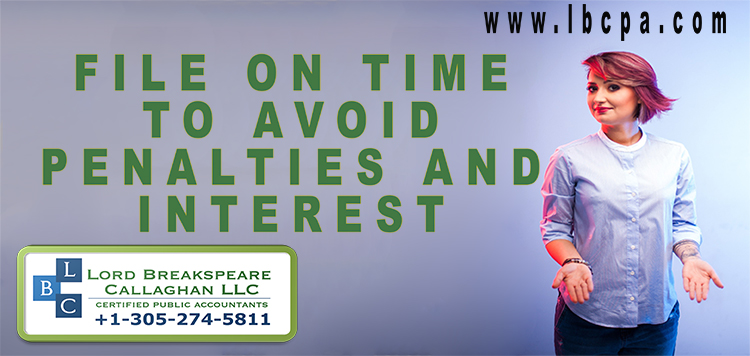LBCPA News 
Click here to go back
TAXPAYERS SHOULD FILE ON TIME EVEN IF THEY CAN’T PAY THEIR FULL TAX BILL

Taxpayers should file their tax return by the deadline even if they cannot pay the full amount due. Otherwise, they may end up owing even more because penalties and interest can cause a taxpayer's debt to grow.
If a taxpayer owes taxes, but can't pay by the July 15, 2020 deadline, they should:
File their tax return or request an extension of time to file.
Taxpayers who can't file their return on time, should request an extension to file. Without this extension, they may face a failure-to-file penalty.
To get an extension to file, taxpayers must do one of the following:
File Form 4868 through their tax professional, tax software or using Free File on IRS.gov.
- Submit an electronic payment with Direct Pay, Electronic Federal Tax Payment System or by debit, credit card or digital wallet and select Form 4868 or extension as the payment type.
Pay what they can by the deadline.
Taxpayers must pay their bill on time. If they don't, they will could face a failure-to-pay penalty. Taxpayers should remember that an extension of time to file is not an extension of time to pay. An automatic extension of time to file will process when taxpayers pay all or part of their taxes electronically by the Wednesday, July 15 due date.
Set up a payment plan.
Taxpayers who know they owe taxes but can't pay by the deadline have options. For example, they can apply for a payment plan on IRS.gov or in writing using Form 9465, Installment Agreement Request.
The tax filing deadline has been postponed to Wednesday, July 15, 2020. The IRS is processing tax returns, issuing refunds and accepting payments. Taxpayers who mailed a tax return will experience a longer wait. There is no need to mail a second tax return or call the IRS.
If you have any questions regarding accounting, domestic taxation, essential business accounting, international taxation, IRS representation, U.S. tax implications of Real Estate transactions or financial statements, please give us a call at 305-274-5811.
Source: IRS






